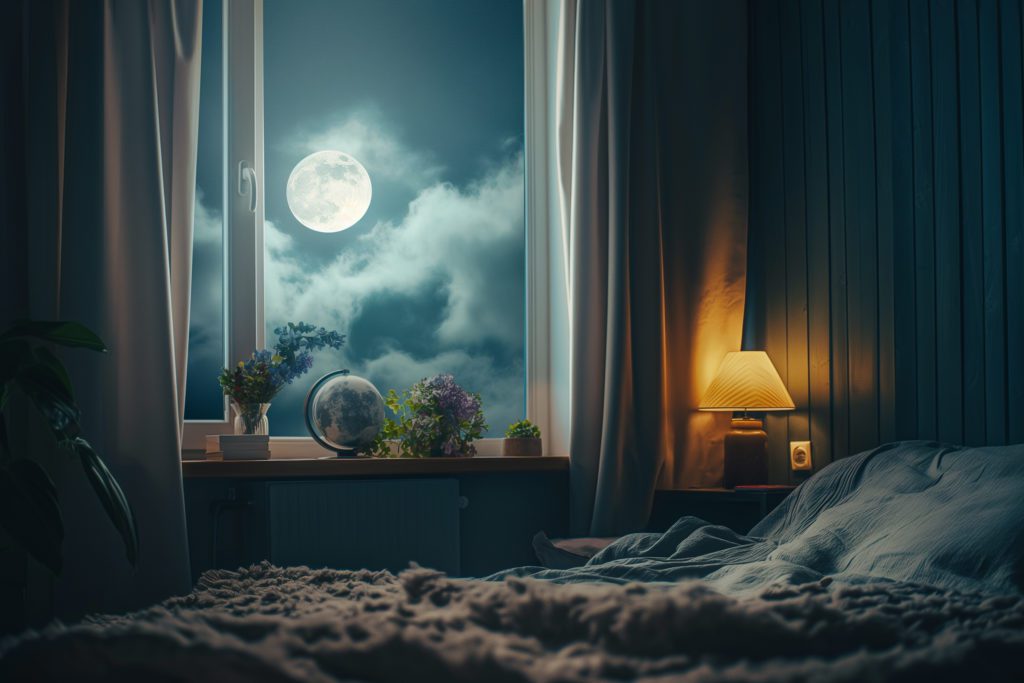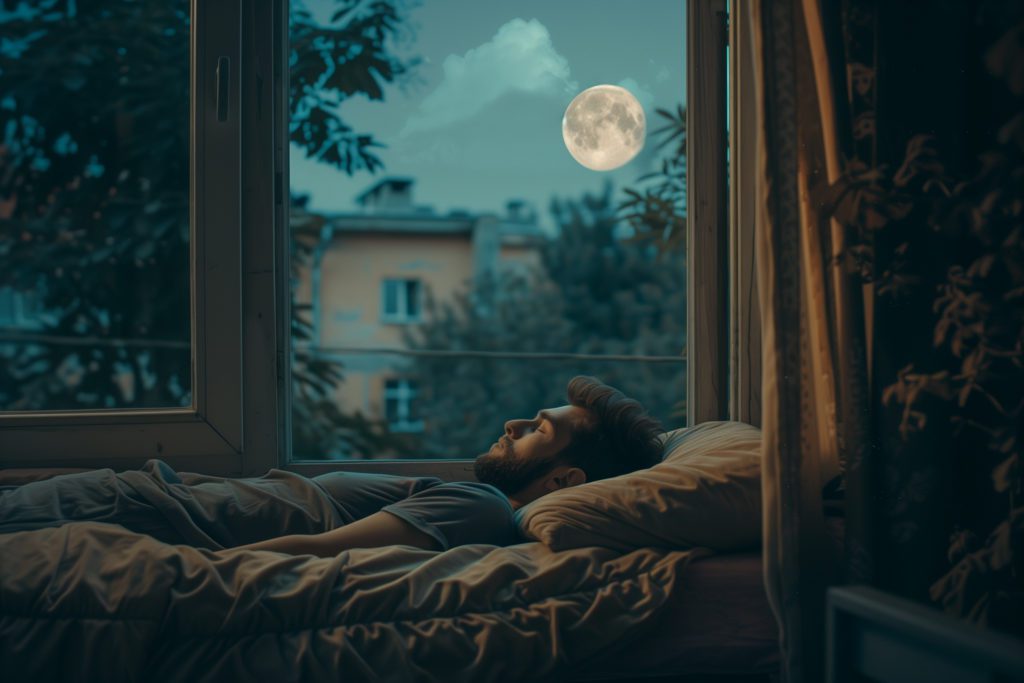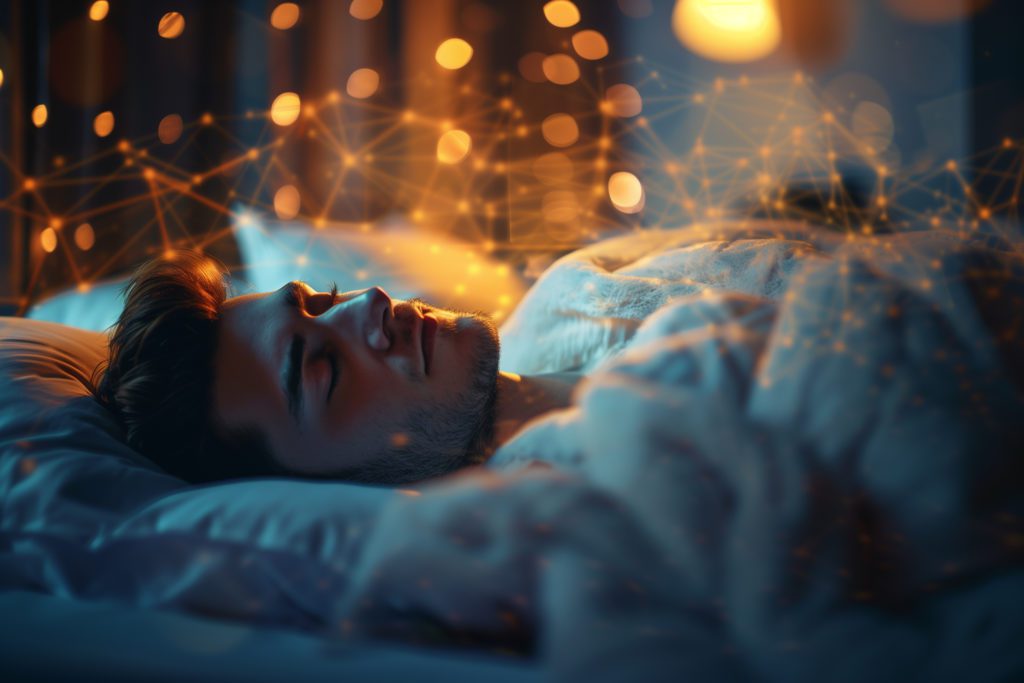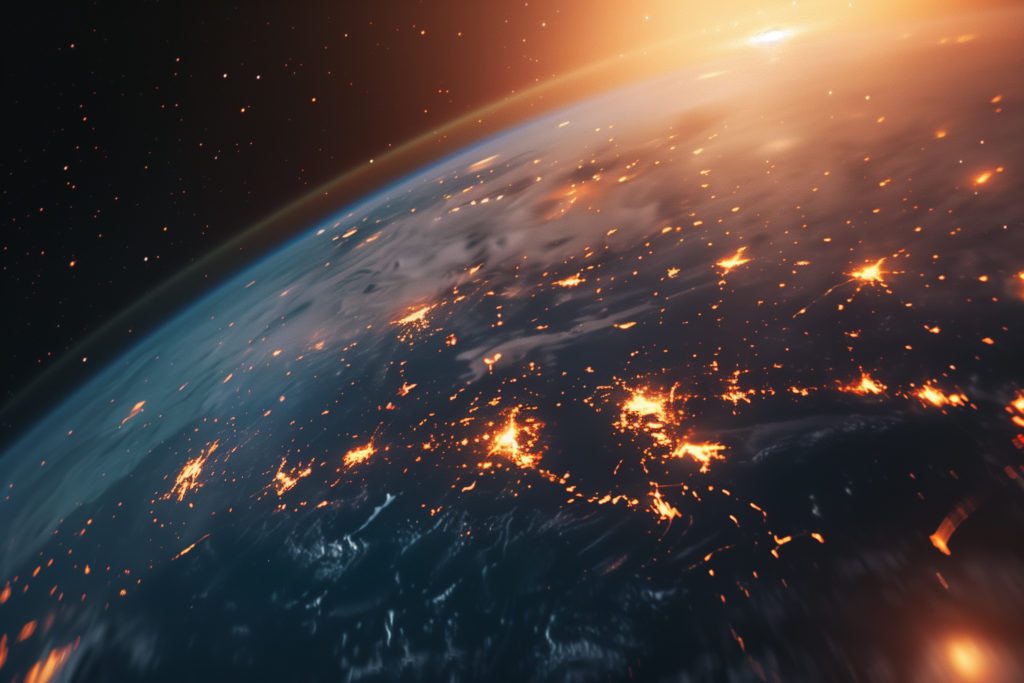
Lunar Sleep Cycles: Exploring the Impact of the Moon on Sleep Quality
Explore how the moon's phases affect our sleep quality and duration, impacting everything from women's menstrual cycles to circadian rhythms.

Have you ever struggled to get enough sleep on a full moon? While you might think it was just your imagination, research says that the lunar cycle can actually affect us a great deal more than we think. Contrary to what many believe, the moon and its relative position in the night sky do impact our sleep quality and sleep health, especially when it is a full moon. In this article, we’ll explore exactly how the moon affects our sleep quality.
We’ll explore more about the lunar cycle and how you might feel a change in your sleep, specifically in terms of your sleep duration, sleep quality, and sleep patterns. As you’ll discover, the lunar cycle has more of an influence on our sleep than we might have realized. Let’s first start by exploring the lunar cycle so that we can understand why it might impact us so significantly.
Understanding the Lunar Cycle
The lunar cycle refers to the moon's phases, which occur because of the moon’s rotation around the Earth. The most well-known and recognizable phases of the moon are the new moon, which is the absence of the moon from the night sky, and the full moon, which is the moon in full view. However, in between these two phases, the moon also presents the waning crescent, third quarter, waning gibbous, waxing gibbous, first quarter, and waxing crescent phases.
While you might think that this doesn’t relate to your sleep, it definitely does. The moon's position relative to us on Earth impacts us more than we might notice in our day-to-day lives, as we will uncover next.
How the Moon Impacts Sleep Quality
Believe it or not, the moon can impact our sleep quality and duration. It might be too subtle for you to notice, but if you pay close attention, you may notice that you go to bed earlier some nights. Some nights, you may struggle to get to sleep, feeling restless and anxious for no reason. According to research from sleep experts, here are three potential ways that the moon’s cycle impacts our sleep quality.
The Moon Enhances Sleep Quality for Women on Their Period
While there are no connections between a woman’s period and the moon cycle, several studies show that specific moon phases may be associated with worse or improved sleep quality. Women who were on their period during a “light period” or a full moon had significantly better sleep than those who had their period during a new moon or the “dark period” of the lunar cycle (Source: MDPI). This fascinating research shows how much women might be affected by the moon’s lunar cycle!
Many people might argue that the change in sleep pattern can be traced back to the lunar cycle and a woman’s menstrual cycle occurring in roughly the same time frame: around 29.5 days. Even then, it’s clear that women sleep better when they have their period during the full moon instead of during the new moon, the darkest part of the lunar cycle.
It Influences Your Circadian Rhythm During Full Moons
Full moons may be the subject of myths surrounding werewolves and monsters, but they have a real-world effect on humans, too. While it might be hard to believe, full moons may alter our circadian rhythm unexpectedly. Some researchers curious about this subject have studied the differences in sleep for people on full moons and other moon phases, and they have found some intriguing conclusions.
One study on communities in Argentina showed that full moons typically were correlated with shorter sleep and later bedtimes as compared to other nights, showing an alteration of the circadian rhythm. People could argue that this is because of the increase in light—and that’s definitely true!
The boost of moonlight might make people stay up later and cause them to wake up after shorter rest because of the late bedtime. However, we should also look at what some people have found regarding the moon’s gravitational effect and how this might impact our sleep duration.
The Moon’s Gravitational Effect May Affect Sleep Duration
It’s no secret that we are affected—even minorly in some way—by the moon’s gravitational pull, so it should be no surprise that studies have also looked into this. Interestingly enough, the moon’s gravitational pull is strong during a full moon, which is also when researchers have noticed some slight changes in sleep duration over time. In fact, one team found that people slept around 25 minutes less on full moons (Source: Postgraduate Medical Journal).
Other research has shown that the duration of sleep during full moons is even less because the onset of sleep is delayed, and then sleep duration is even shorter, sometimes by up to 1.5 hours! On the other hand, the same studies show that people may experience even longer sleep duration on different nights, potentially due to the absence of a fuller moon.
It is unclear whether this can be exclusively attributed to the moon’s gravitational pull, but the full moon’s increased gravitational pull should be noted as an essential variable. Either way, you can see how the moon’s effects may affect our sleep duration, especially around full moons.
Take Steps to Enjoy Restful Sleep
Whether you struggle with sleep during specific moon phases or not, there is still plenty of research out there to suggest that the lunar cycle plays an essential role in our sleep quality and duration. While there’s still so much left to uncover in this area, we at least know how it affects women's health and people’s circadian rhythms and how the gravitational pull might play a role in sleep quality and duration.
Check out the rest of our website for more articles on sleep health and tips and tricks for enjoying quality rest.
FAQ
How do lunar phases influence mental health and sleep?
The full moon has been associated with increased sleep disturbances in individuals with mental health conditions, such as bipolar disorder. Some research suggests that mood cycles in bipolar patients may synchronize with lunar phases, potentially leading to disrupted sleep during certain times of the lunar month.
Can moonlight exposure during different lunar phases affect sleep quality?
Bright moonlight during a full moon can suppress melatonin production, making it harder to fall asleep. In contrast, the darkness of a new moon may promote better rest due to the absence of moonlight, which allows for more optimal melatonin levels.
Is there a link between lunar phases and insomnia?
Some individuals report increased insomnia during full moons, but studies on this connection are mixed. While some research suggests a slight reduction in deep sleep and longer time to fall asleep, others find no significant impact. Psychological expectations and moonlight exposure may play a larger role than any biological effect.
Is there a historical or cultural basis for beliefs about the moon and sleep?
Throughout history, many cultures have linked the full moon to changes in human behavior and sleep patterns. Folklore often associates full moons with restlessness, insomnia, or even increased activity, such as in werewolf legends. While modern science has not confirmed strong lunar effects, these beliefs persist in various traditions.
Do animals experience changes in sleep patterns during different lunar phases?
Some research suggests that animals, particularly nocturnal species, adjust their behavior based on moonlight exposure. Predators may hunt less during full moons due to increased visibility, while prey animals may be more alert, leading to altered sleep patterns. Domesticated animals, like dogs and cats, may also exhibit restlessness during full moons, though scientific evidence is limited.
Can the lunar cycle affect athletic performance and recovery during sleep?
Some athletes and trainers believe that the lunar cycle influences physical recovery, with full moons potentially leading to less restful sleep. Sleep disruptions could impact muscle recovery and performance. However, studies on this topic are limited, and any effects are likely due to psychological factors or altered sleep habits rather than direct lunar influences.
Can the moon's phases affect how rested people feel upon waking?
Some individuals report feeling more fatigued after sleeping during a full moon, potentially due to reduced sleep quality. Light exposure, subconscious expectations, or minor disruptions in melatonin production may contribute to this effect. However, scientific studies have not consistently confirmed a direct link between lunar phases and morning wakefulness.

Written by
Marie Soukup
Marie Soukup is a seasoned copywriter, editor, and Integrative Nutrition Health Coach with a certificate from the Institute of Integrative Nutrition (IIN). With years of experience working with brands across diverse industries, Marie is passionate about holistic health and crafting compelling content.
Download Pillow
Get help
Press & News
Legal
Connect
X (Twitter)
Company
Copyright © Neybox Digital Ltd.



